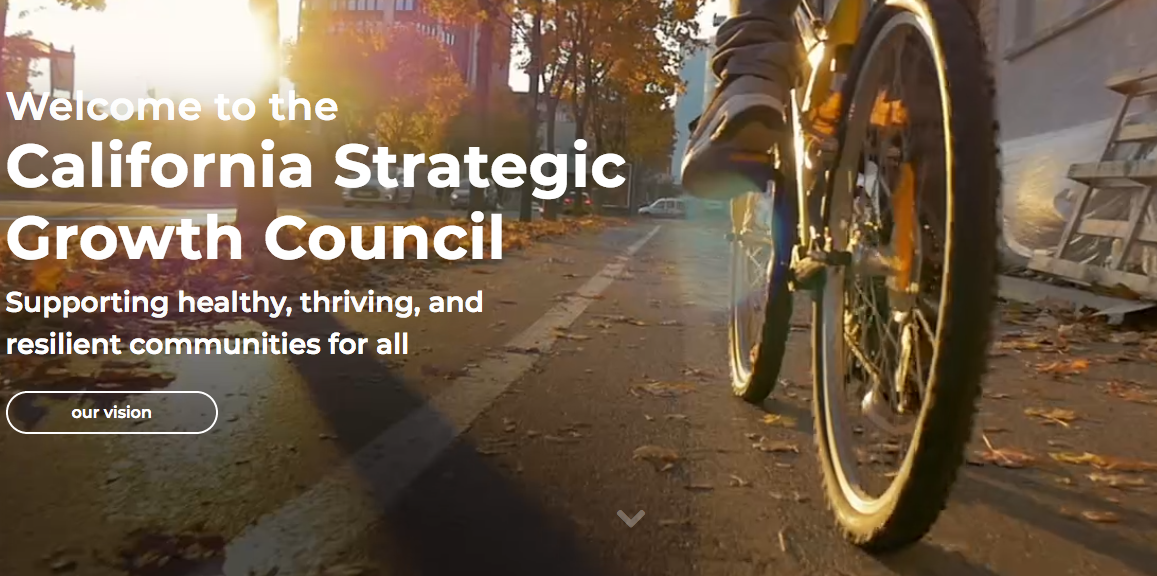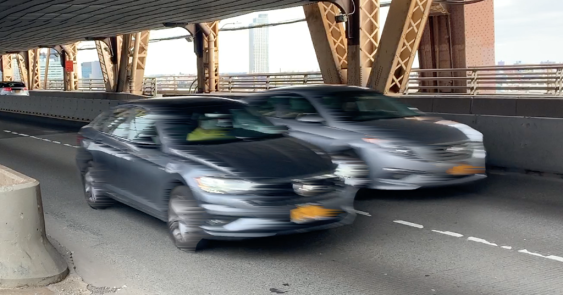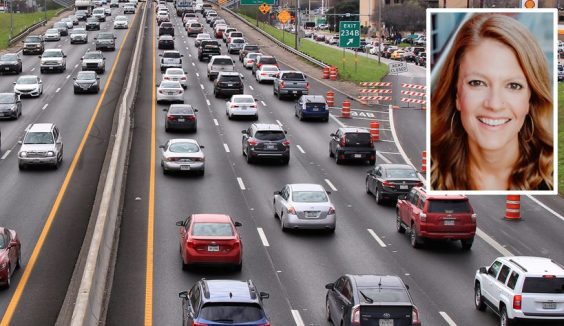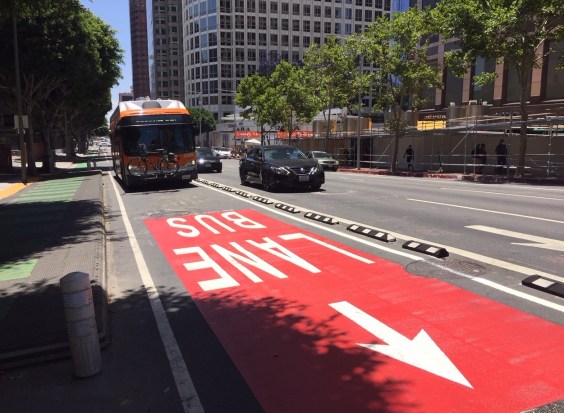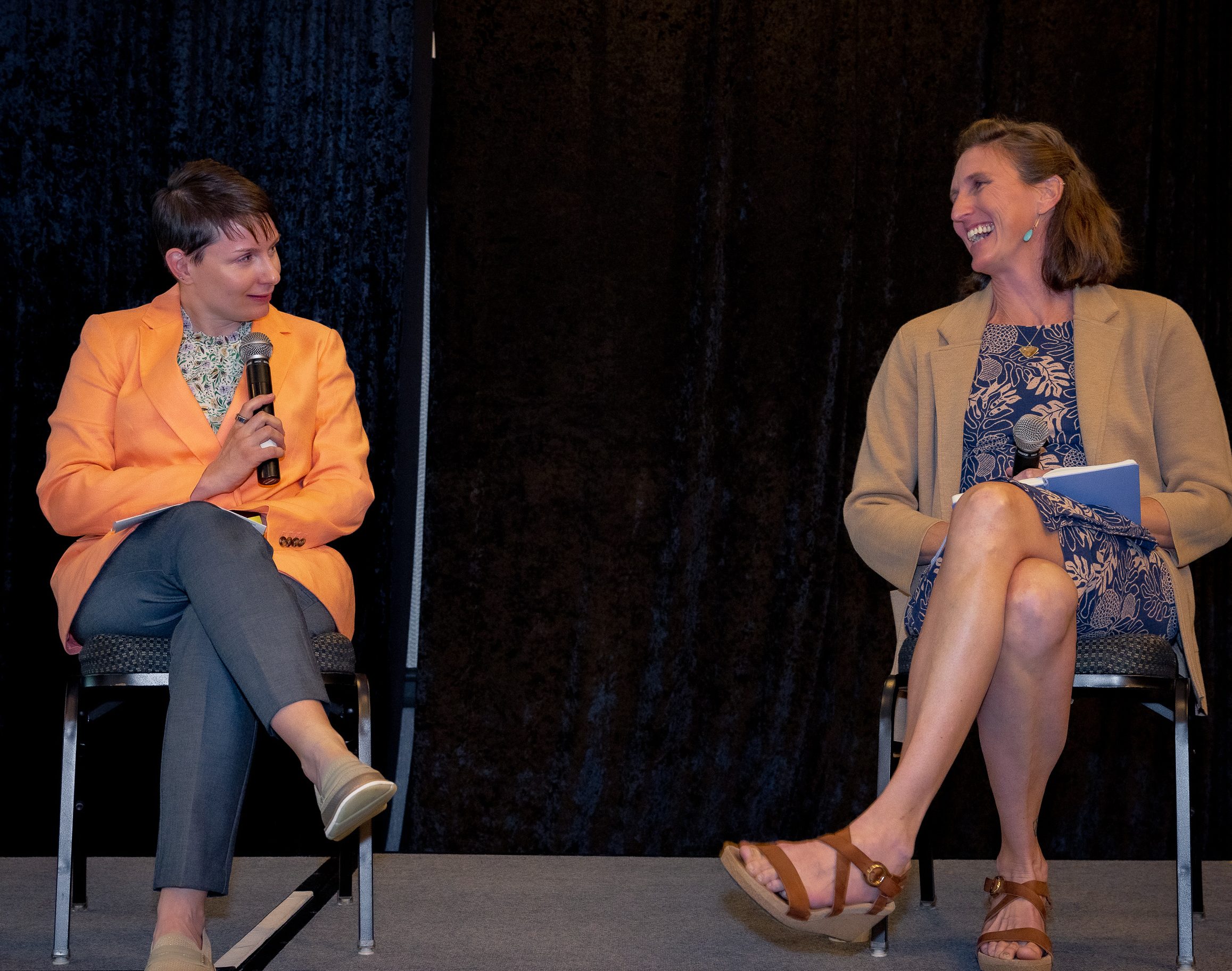Note: GJEL Accident Attorneys regularly sponsors coverage on Streetsblog San Francisco and Streetsblog California. Unless noted in the story, GJEL Accident Attorneys is not consulted for the content or editorial direction of the sponsored content.
Yesterday the California Strategic Growth Council met to discuss and approve a list of staff recommendations for grants in four of its programs that shift the state towards sustainable, healthy, equitable planning and infrastructure. The grant programs encourage collaboration across local agencies and nonprofits, and include strong encouragement of quality public engagement to find ways to reduce driving and greenhouse gas emissions while supporting housing and transportation needs.
“We are thrilled to make these awards to high-impact projects by deserving applicants,” said SGC Executive Director Louise Bedsworth. “All four programs – Transformative Climate Communities, Affordable Housing and Sustainable Communities, Climate Change Research, and Proposition 84 Wildfire Resilience and Recovery – are highly competitive; nevertheless we saw many more qualified projects than we were able to fund. We are inspired by efforts across California to build healthy, thriving, resilient, and equitable communities.”
Affordable Housing and Sustainable Communities Grants
Details on the grants in this program can be found here [PDF]. They include affordable, transit-oriented infill housing, clean transportation options, transit improvements, electric buses, bikeways, sidewalks, and the like, throughout the state. Staff highlighted projects in Imperial, Coalinga, Ridgecrest, Arcata, Santa Rosa, and Riverside as examples of "how low-VMT development can fit into local contexts, particularly in areas without histories of dense, transit-oriented development."
Not everyone was pleased with the outcome of the awards. In particular, a number of commenters from San Diego complained that, given the circumstances of the region, it may never be able to compete effectively against Los Angeles and the Bay Area in this program.
Those circumstances include sparser transit access - so increasing the ridership numbers as much as other regions is a big lift - and the relative lack of disadvantaged communities as defined by the state.
San Diego is unhappy because it submitted five applications, and none scored high enough to get funding in this round. The planning process for these applications is intense, so the feeling that they wasted their time was strong. SGC staff was concerned about this, and had spent some time trying to figure out how to give some of the program's discretionary funding to San Diego. However, according to the staff report, "awarding such funds in San Diego County would result in AHSC missing its statutory objective of awarding fifty percent of funds within Disadvantaged Communities."
Several commenters at the meeting asked the Council to revisit the list of grants, and to consider revisiting its scoring criteria to include some measure of geographic equity. Circulate San Diego delivered a letter arguing for geographic fairness, pointing out that the city has made big changes recently but needs more of an incentive - like the ability to compete - to really shift its priorities.
As it is, 44 percent of the money went to the San Francisco Bay Area, about 40 percent to the L.A. area, and about 14 percent to the San Joaquin Valley.
The real problem is that the AHSC is a small program that tries to do everything. It works well as an example of what can be done, but it is too small to be relied on as the only state funding program for affordable housing. However, as Lourdes Castro Ramirez, Secretary of the California Business, Consumer Services, and Housing Agency, pointed out in a press release from the SGC, these grants “are the single largest allocation of affordable housing funding currently available in California."
These grants, the fifth round of AHSC grants, awarded over $550 million to 26 projects, which between them will build 2,563 housing units near transit, the majority of which will have deeply affordable rents. They also include pedestrian freeway overpasses, safe routes to schools programs, bicycle corridor plan implementation, transit route optimization, low-income community transit service expansion, commuter rail expansion, transit passes for residents of the affordable housing developments and surrounding communities, environmental justice and activism programming, bicycle education workshops, zero-emission car sharing, and workforce training programs.
Did someone mention that the program is trying to do everything?
TCC Planning Grants
Also yesterday, the SCG awarded $600,000 in planning grants under its Transformative Climate Communities program, for three cities out of the ten that submitted applications. In this third round, the cities of Porterville, San Diego, and Pomona will each receive $200,000 for community planning.
The Porterville Unified School District will partner with several local government and nonprofit partners to develop a ten-year Climate Action Plan for Porterville Schools.
In San Diego, the Environmental Health Coalition, a local nonprofit, will work with residents, nonprofits, and the city to conduct community engagement and planning for the Barrio Logan and Logan Heights neighborhoods, focusing on affordable housing, urban greening, and climate-resilience education and engagement.
The city of Pomona will work with local partners on planning around expanding clean, convenient, and affordable transportation options and affordable housing.
TCC Implementation Grants
The Transportation Climate Communities program was also set to award $56.4 million for two implementation grant awards of about $28 million each. Because cap-and-trade auctions - the source of funding for these grants - have tanked as travel and emissions have plummeted along with the economy, the SGC only awarded about $42 million.
The SGC received four applications, and decided to award one full and two partial awards.
In Oakland, the Better Neighborhoods, Same Neighbors: An East Oakland Neighborhood Initiative will get $28 million for community engagement, displacement avoidance, and workforce development efforts. The collaborative effort between Black Cultural Zone, Planting Justice, and East Bay Permanent Real Estate Collaborative will include increasing housing through the production of ADUs, creating jobs, adding community greening, and creating a community bike maintenance program with the help of Oakland Scraper Bikes.
In Riverside, the Eastside Climate Collaborative's TCC application overlapped with the city's application for a grant under the AHSC, which it got; therefore, the total grant to Riverside was less than the full amount, about $10 million, with the rest of the needed funding coming from the AHSC. The Riverside project includes affordable housing, pedestrian and bicycle improvements, a mobility hub expansion, solar installations, and urban greening.
Awarding less to Riverside allowed staff to give a partial award to Stockton, for Stockton Rising. That project will include a complete streets project on Miner Avenue, acquisition of zero-emission buses, urban forest renovation, and workforce development.
More Grants
It was a long meeting, but the SGC wasn't finished. The council also awarded its third round of climate research grants, giving out almost $5 million for six grants to California universities and research institutions working on energy, air quality, ecological restoration on tribal land, outdoor cooling, farmland, local development, and community solar storage. Details can be found here [PDF].
The last group of grants was $720,000 in Wildfire Resiliency and Recovery Planning Grants for planning support to communities affected by catastrophic wildfires. Those went to the cities of Paradise and Moorpark, and the counties of Ventura and Sonoma. Details can be found here [PDF].
